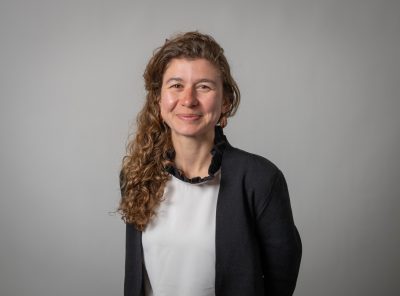Desen Ozkan recognizes that engineering is traditionally thought of as using math and science to solve problems in the world.
But what is missing from this definition—and the engineering curriculum—she says, are the contexts in which engineers interact in a world of political, social, and economic consequences.
“When engineering is portrayed as a field that encompasses various contexts and is influenced by social and technological factors, it can have a positive impact on the individuals who choose to pursue a career in engineering,” she said. “If engineers fail to consider the social and political aspects surrounding their work, they may unintentionally contribute to existing problems and inequalities.”
Ozkan, a new tenure-track assistant professor of chemical and biomolecular engineering (CBE), will join the University of Connecticut’s School of Engineering next fall. In addition to her own CBE scholarship and instruction, in the future, Ozkan will develop a preliminary curriculum for new initiatives in engineering education and experiential learning.
